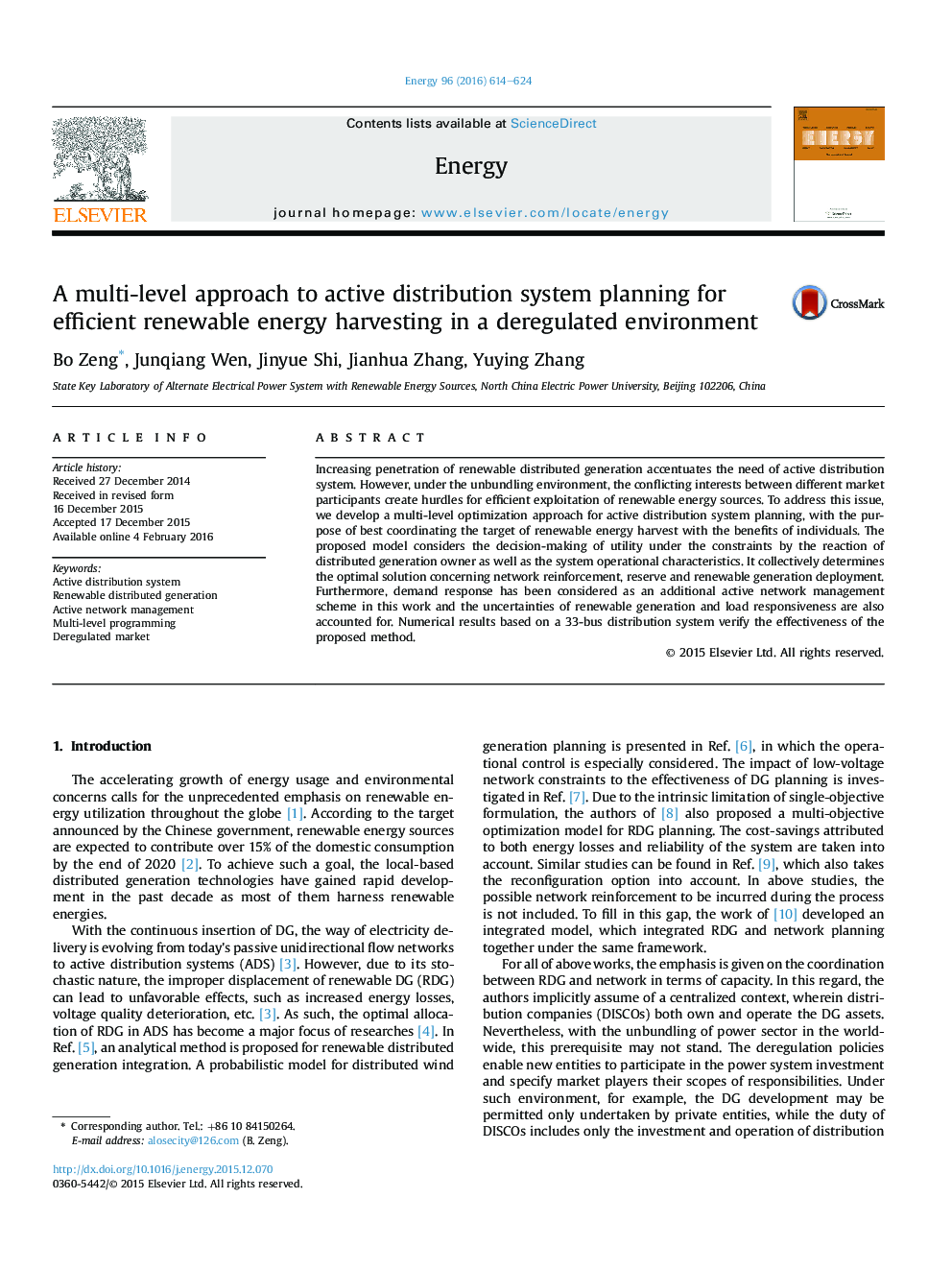| Article ID | Journal | Published Year | Pages | File Type |
|---|---|---|---|---|
| 1731298 | Energy | 2016 | 11 Pages |
•We examine the benefits of active network management in a long-term planning setting.•Our method can increase the total utilization of renewable energy by 22%.•Effective coordination can be achieved for interest conflict among market players.•The value of demand response varies with the correlation between generation and load.•Renewable energy harvest highly depends on the pricing mechanism that imposed.
Increasing penetration of renewable distributed generation accentuates the need of active distribution system. However, under the unbundling environment, the conflicting interests between different market participants create hurdles for efficient exploitation of renewable energy sources. To address this issue, we develop a multi-level optimization approach for active distribution system planning, with the purpose of best coordinating the target of renewable energy harvest with the benefits of individuals. The proposed model considers the decision-making of utility under the constraints by the reaction of distributed generation owner as well as the system operational characteristics. It collectively determines the optimal solution concerning network reinforcement, reserve and renewable generation deployment. Furthermore, demand response has been considered as an additional active network management scheme in this work and the uncertainties of renewable generation and load responsiveness are also accounted for. Numerical results based on a 33-bus distribution system verify the effectiveness of the proposed method.
